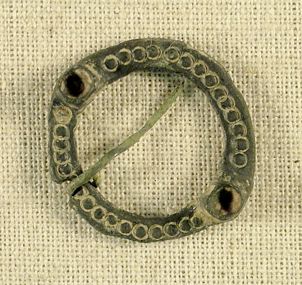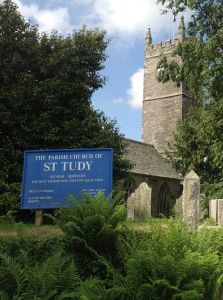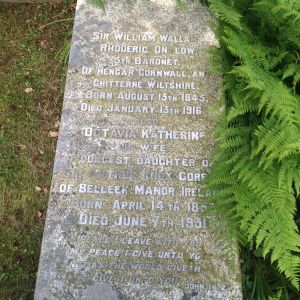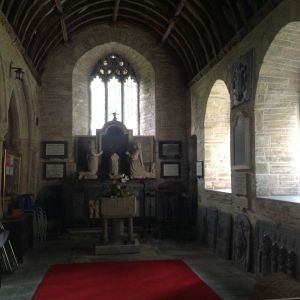After Walter Long died in Torquay in January 1867, and Maria’s employment by Lady Bisshopp ceased, Maria’s next letter is written from Armadale in Row*, Helensburgh, near Glasgow, Scotland. It is dated less than 6 months later on the 20th June 1867. In the letter she says to her mother:
Well, Mother dear, I finished the Brandy and Water Whitsunday evening that Harriett and you mixed the morning I left my home sweet home so you see, though not at the Kings Head yet, I had some Kings Head Brandy mixed with Chitterne water to drink the health of my loved ones on the Auld Hills of Scotland. I was too full the day I left home, although thank God I was able to keep up whilst I was with you. You will, I am sure, rejoice to hear that I am very happy and have every comfort I can wish for in this world, the dear Children devotedly fond of me, my Mistress very kind and my fellow servants also, and very respectful. And a comfortable nursery to myself and no one intrudes except I ask them, but its very nice to sit down quiet of an evening. I don’t wish for company after being out all day, and my Mistress very kindly brings me a newspaper nearly every evening. She always comes to see the Children in bed after her dinner and has given me a pot of jam twice for my own tea, although she does not allow the Children to take it.
These are little kindnesses which find the way to one’s heart and if the Children are naughty, as they are sometimes, she always says poor Nurse and never encourages them in any way. She has never found fault with any thing, or looked cross, since I have been in Scotland, and last Thursday she took me into Helensburgh in the carriage and told me to go into a shop and buy myself a new print dress, something like the one I have. As she liked it so much, I have enclosed a bit for you to see. She is very pleased with it. I think I am very fortunate to get a new dress given me already. She said last week, Nurse, I must compliment you on the way you do the Children’s hair, and dear Papa is quite enraptured with it.
I think I must be a bit of a favourite with the old Gentleman as he is rather eccentric and does not like to meet a female servant , but yet, I often go in the carriage with them and always sit beside the old man, he is much such a looking Gentleman. Poor Mr Long.
I don’t think I told you that I am the only English servant and so Mrs H takes me into Helensburgh every other Sunday with her in the carriage. She is very regular at Church. I get every other Sunday and then the nursery maid takes charge of the Children. There is an English clergyman and a small congregation and the service is held in a part of the town hall, but they are building an English Church. All the other servants attend the Scotch Church in the village. This is a beautiful place where the Glasgow Merchant … (illegible) have their summer residences and they can go into Glasgow every day, as the steamboats pass every two hours, just as the trains would, and there is a little pier here just for them to stop and take up goods and passengers and put down, but I think I must close my letter.

I will write to Jimmy next time. Tell him I hope he is a good boy and give him my love and kisses. I hope my Brother and family are well. I am very pleased that Harriett is rigged out so well. My kind love to all and be sure you tell dear Mrs George how I am getting on. And now, may Him who is the giver of all good, abundantly bless you all and all our kind friends, and keep us humble, watchful and prayerful and then in life or death, all will be well. With much love to you my own dear Mother, I remain your afft. Maria
Maria has been hired to look after two little girls, Eva Constance aged 3 and Mary Frances Beryl Hamilton aged 2 after the early death of their father, John William Hamilton, the previous year, the girl’s mother, Constance Dennistoun Hamilton is with them. Constance is the daughter of a retired Glasgow merchant, John Dennistoun (1803-1870), and Armadale is one of his homes. The Dennistoun family made their money from the international shipping company started by John’s father James Dennistoun, and gave their name to an area of Glasgow known as Dennistoun, founded by John’s brother Alexander Dennistoun.
Just imagine the journey Maria has made, from dear old familiar Chitterne to the outskirts of one of the most booming industrial cities in Britain. From a poor rural village life of agriculture and cob houses to a wealthy scene of busy shipping on the Clyde and tall granite town houses.

Once again Maria, whose fame as a conscientious worker must have spread, has been snapped up by a family connected to Chitterne. John Dennistoun’s wife’s mother, is Frances Anne Onslow, daughter of Sir Henry Onslow bt. lord of a large slice of Chitterne who is buried in All Saints graveyard here. What sort of adventures await her with her new employers? We will find out soon…
*Rhu is a village and historic parish on the east shore of the Gare Loch in Argyll and Bute, Scotland. The traditional spelling of its name was Row, but it was changed in the 1920s so that outsiders would pronounce it correctly. The name derives from the Scots Gaelic rubha meaning point. It lies north-west of the town of Helensburgh on the Firth of Clyde, in Argull and Bute, and historically in the county of Dunbartonshire. Like many settlements in the area, it became fashionable in the 19th century as a residence for wealthy Glasgow shipowners and merchants. Wikipedia.





